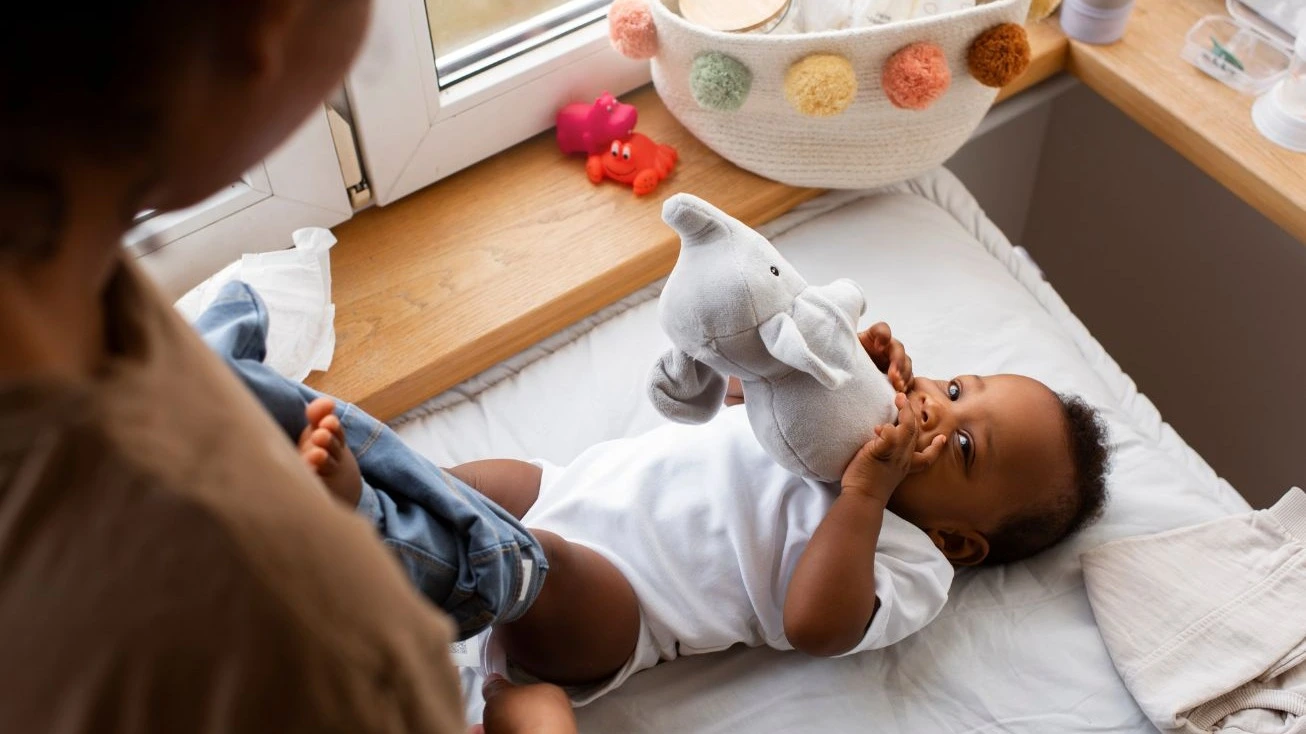
Mastering Newborn Care: From Bath Time to Diaper Changes
Caring for a newborn involves mastering key tasks like bathing, diapering, and dressing. This blog provides essential tips for creating a safe environment, choosing the right products, and ensuring your baby's comfort. From proper diaper-changing techniques to selecting appropriate clothing for different weather conditions, this guide offers practical advice to help new parents navigate newborn care with confidence.
Introduction
Welcoming a newborn into your family is an exciting journey, but it also comes with responsibilities. Your baby's well-being is paramount, and essential newborn care plays a crucial role in ensuring their health and comfort. This guide will focus on three key areas of newborn care: bathing, diapering, and dressing. Let's begin by preparing for the journey ahead.
Preparing for Newborn Care
Newborn Safety Considerations
Newborns are delicate, and safety should be your top priority. According to the American Academy of
In paediatrics, approximately 60% of injuries to newborns are related to falls. To ensure safety:
Install safety gates: Block access to stairs and other dangerous areas.
Secure heavy furniture: Prevent tipping hazards.
Babyproof your home: Cover electrical outlets and keep small objects out of reach.
Gathering Essential Supplies
Before you embark on newborn care, it's essential to have the necessary supplies at your disposal.
Some essential items include:
Diapers: Choose the right size and type for your baby.
Baby wipes: Sensitive, fragrance-free options are best.
Baby soap and shampoo: Opt for gentle, hypoallergenic products.
Towels and washcloths: Soft, absorbent materials are ideal.
Creating a Safe Environment
Your baby will spend a lot of time in their crib or bassinet, so ensure it's a safe haven:
Firm mattress: Choose a crib mattress that fits snugly.
No loose bedding: Avoid pillows, blankets, or stuffed animals.
Back to sleep: Babies should sleep on their backs to reduce the risk of Sudden Infant Death Syndrome (SIDS).
Bathing Your Newborn
Why Newborns Need Baths
Newborns aren't dirty, but their skin may have vernix—a waxy, white substance. According to research, bathing helps remove vernix and regulates a baby's body temperature.
Baby Bath Temperature and Safety
Your baby's bathwater should be lukewarm, around 98.6°F (37°C). Test it with your wrist to ensure it's not too hot. Always support your baby's head and neck while bathing, and never leave them unattended.
Gentle Baby Cleansers and Skincare
Choose baby-friendly cleansers and skincare products to avoid skin irritations. Brands like Johnson's Baby offer gentle options.
Tips for a Soothing Bath Experience
Bath time can be both enjoyable and soothing for your newborn:
Soft music: Play calming music to relax your baby.
Gentle touch: Use soft washcloths and strokes to cleanse their skin.
Eye contact: Maintain eye contact to create a bond.
Diapering Essentials
Choosing the Right Diapers
Selecting the right diapers is essential for your baby's comfort. According to a survey by Pampers, 93% of parents find diapers with wetness indicators helpful. These indicators change color when wet, making it easier to know when it's time for a diaper change.
Diaper Changing Techniques
Proper diaper-changing techniques are crucial to prevent leaks and discomfort:
Wipe front to back: This prevents urinary tract infections.
Secure fit: Make sure the diaper is snug but not too tight.
Dispose of waste properly: Use a sealed diaper disposal system.
Preventing and Managing Diaper Rash
Diaper rash is common but preventable. According to a study in the journal Pediatrics, using a zinc oxide-based diaper cream can reduce the severity and duration of diaper rash.
Umbilical Cord Care
The umbilical cord stump requires special attention. Keep it clean and dry, and avoid submerging it in water until it falls off, which usually happens within two weeks.
Dressing Your Newborn
Selecting Appropriate Baby Clothing
Choosing the right clothing is essential for your baby's comfort and safety. Dress your baby according to the weather. For example, in colder climates, opt for warm, breathable fabrics like organic cotton.
Swaddling Techniques for Comfort
Swaddling can help your baby sleep better and reduce their startle reflex. However, it's essential to do it correctly to prevent hip dysplasia. Always leave enough room for your baby's hips to move.
Dressing for Different Weather Conditions
Adjust your baby's clothing based on the weather. In hot weather, dress them in lightweight, breathable fabrics like muslin. In colder weather, layering with a warm onesie, hat, and blanket is ideal.
Tips for Newborns with Sensitive Skin
If your baby has sensitive skin, opt for hypoallergenic detergents and clothing. Brands like Honest Company offer products designed for sensitive skin.
Baby Grooming and Hygiene
Nurturing Newborns' Grooming Needs
Maintaining your baby's hygiene involves more than just bathing and diapering. It also includes nail trimming and hair care. Use baby-safe nail clippers and a soft brush for their hair.
Cleaning the Face, Eyes, and Ears
Gently clean your baby's face, eyes, and ears with a soft, damp cloth. Avoid using cotton swabs, which can be dangerous.
Newborn Safety and Comfort
Creating a Safe Sleep Environment
To reduce the risk of SIDS, follow the ABCs of safe sleep:
Alone: Babies should sleep alone.
Back: Place your baby on their back to sleep.
Crib: Use a firm crib mattress.
Monitoring Baby's Temperature
Newborns can't regulate their body temperature well, so it's crucial to ensure they're not too hot or too cold. Feel the back of their neck to gauge their comfort.
Ensuring Comfort and Swaddling
Swaddling can help babies sleep soundly, but it should be done correctly to prevent hip dysplasia. Ensure your baby's hips have room to move and are not tightly bound.
Baby Products and Essentials
A Guide to Essential Baby Care Products
When it comes to baby products, it's essential to choose wisely. Look for products free from harsh chemicals and fragrances. Reading reviews and consulting with other parents can also be helpful.
Choosing Baby-Friendly Detergents and Soaps
Baby clothes and bedding should be washed with a detergent suitable for sensitive skin